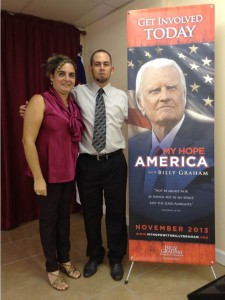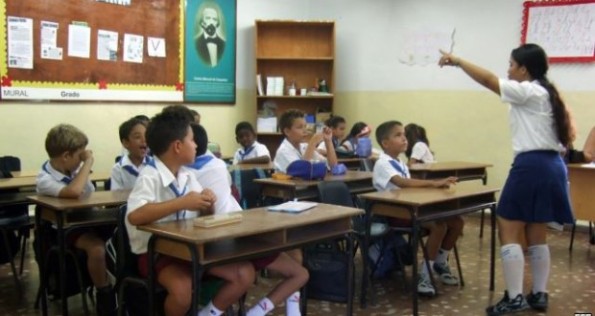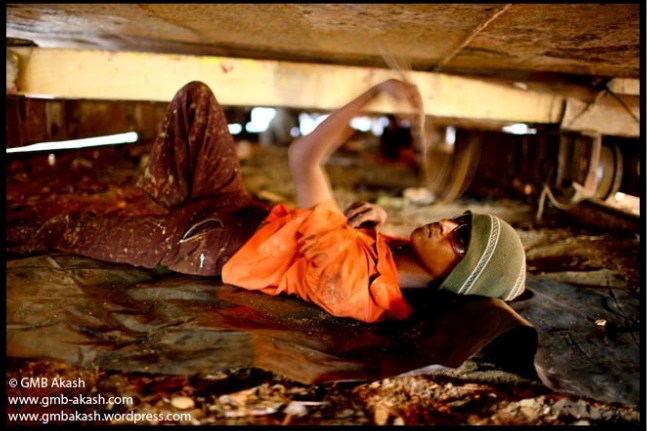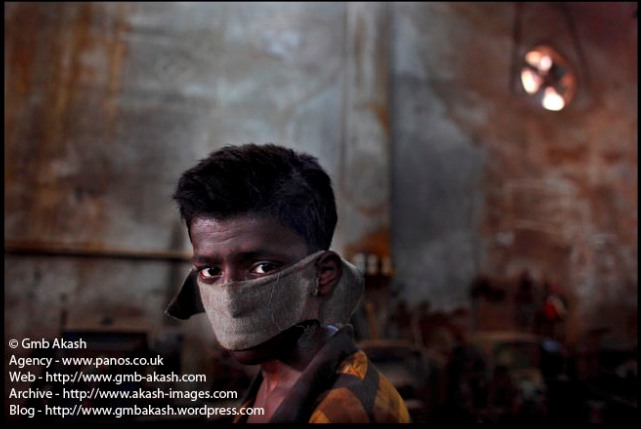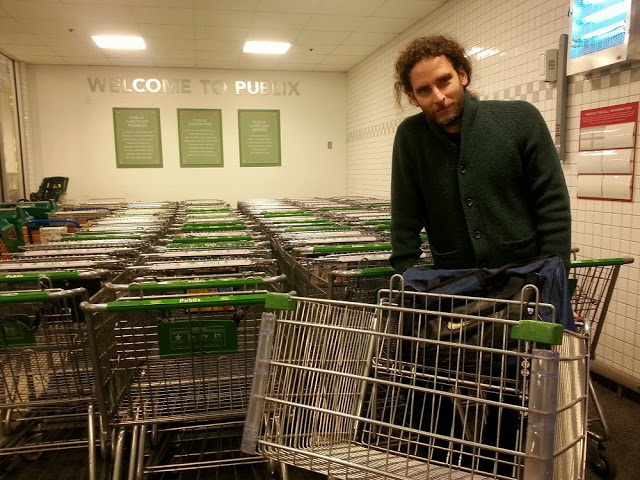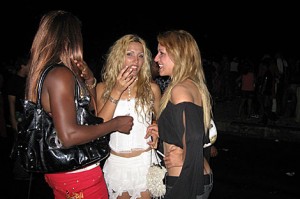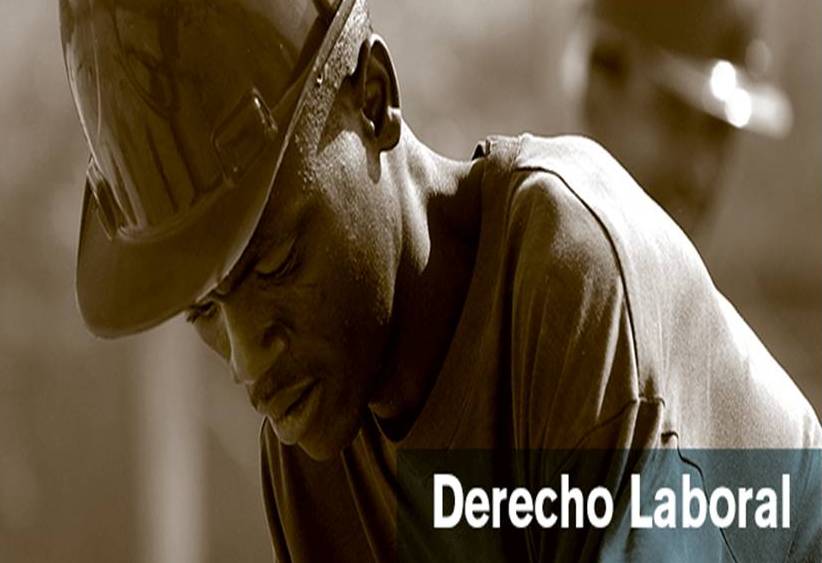Yes, it would appear that the themes discussed yesterday at the Casa de las Américas [an institution in Havana to promote inter-cultural links with other countries <transl.>] were not of interest for the future of Cuban culture and thought. It seems like they were trying to mend fences (with every justification) with some of the victims of a period which was not just grey but invisible.
For many like me, knowledge of this part of our cultural history is limited to commentaries about some benchmarks and readings between the lines in essays and spaces such as those in magazines like Temas or Criterios. Nevertheless, the youngest artists, researchers, and intellectuals in general who wanted to attend had to be content with the iron barriers which were put up at our beloved Casa. “There isn’t space,” they said, and it was certainly true: there was no room for us in that coterie.
The sad thing in all this is that perhaps it would not have been like that, it is very possible that if they had asked our Desiderio if that was the auditorium he had in mind for his cycle of conferences, the reply would have been in the negative. And it isn’t because those who got in did not deserve to do so, but because those of us who were stuck outside would have had the right to attend as future makers of Cuban culture.
There are those who think that it was all just a problem of organisation, there are those who are more suspicious, but the fact of the matter is we couldn’t get in. How many invitations intended for members of the Asociación Hermanos Saíz, did not go out from the National Council? Why did the UNEAC [Writers and Artists Union of Cuba] manage the entire organisational process, helping themselves to an enormous quota? And what about the University of Havana? It’s very possible that half of the people who were inside, if they hadn’t been expressly invited, would have remained in their houses, and that is not as innocent a speculation as you might think. How concerned must they be about Cuban history and culture to go to such major and controversial conferences as are arranged by the Centro Teórico-Cultural Criterios [Criterios Theoretical-Cultural Center] and confront the faces of those who usually get in, the stares of those who yesterday were among the chosen?
Fortunately, deep-thinking people were also up there, people who, apart from their artistic merits, have always been in the habit of expressing their opinion, debating, confronting, being heretical. But that isn’t enough: we should also be there, and that doesn’t seem to me to require any more justification. One of those people excluded said that maybe it was better for us to be outside instead of inside, maybe we were playing our own particular part in the history; maybe, I would now say, we were demonstrating that that is not just about the past but also about our difficult present.
I welcome the entry of this debate into the schedule of the Cuban intellectuals, those who suffered the “Pavonato“, those of us who now gather the fruits of those injuries and perhaps confront others of a similar nature. I am confident that the seats at the upcoming conferences in this cycle will be available for those of us who are interested in listening so as to know what to do about the future of our culture. continue reading
Lic. Isbel Díaz Torres
Writer, member of the Asociación Hermanos Saíz
Wednesday, January 31, 2007.
CONFERENCE FOR THE UNDER-40S
OK, as you must know by now, there has been a Conference for the youngsters … or conferences … or, the workshop “The Cultural Policy of the Revolution”, as it was put on the invitations distributed by the Centro Teórico-Cultural Criterios and the Asociación Hermanos Saíz.It took place last Friday (February 23rd) at 2 pm in the ISA. [University of Arts of Cuba]
Who was invited? Well, although I don’t have the figures, there were plenty of people there, the great majority youngsters. Intellectuals from every branch of the arts, researchers, writers, from the AHS (higher-ups and ordinary members), students from the University, and creative people from many provinces of the country. Perhaps this time too they didn’t achieve an ideal auditorium, in order to generate a real debate, but I think we can agree that that’s a really difficult task. But, as Alain Ortiz said, ”the significance of the meeting lay in its multigenerational representation”.
I have conflicting impressions of this. On one side I feel satisfaction at having been a part of this debate, at having had the opportunity to speak freely, like many other young people there, and at having discussed topics which cannot be put off regarding our culture and politics. As has happened more than once, it is gratifying to feel that Abel listens to us and takes us into account. But, on the other hand, I also feel, as do some of my friends right now, that there is no confidence in any immediate solution to many of the questions which were put, and that, at the end of the day, that is what really matters. The tone of excusing the situation on the part of Iroel Sánchez (Director of the Cuban Book Institute) and at certain times of Abel himself was somewhat discouraging. We young people are in a hurry, that’s for sure. Many of the things we are asking for we should have had yesterday, and without waiting in hope that perhaps they will give it to us tomorrow.
Nevertheless, I want to be optimistic, “miracles are slow in arriving” as Silvio says, but we can see the lights on the horizon. This process which has been unleashed is irreversible, in my judgement, and I feel that the Revolution is plagued by rich contradictions, which will become more marked if we are successful in taking advantage of them. I am not talking about opportunism, but about not leaving those issues we are concerned about locked away in the filing cabinet and insisting that they are addressed and resolved. I feel that much of what we are now suffering is truly due to the fact that the injuries were not healed at the time they were inflicted. It’s like trying to conceal a piece of meat under the mattress: the putrefaction and bad smell will come out in time. That time is now. Tools such as the web and emails are in our favor, silence is impossible.
Up to this moment I haven’t noticed that this workshop has had any impact; neither in the national press, nor in emails. That worries me a lot, because I think it was a profitable debate, some ground was gained. Are we only interested in obtaining an emotional release by complaining about our misfortune, or do we want to really structure this debate? It is essential that we are fully aware of what we are doing. I am not talking about a plan of action, or anything like that; we all have our own ideas and important differences. But the desire to renew things, to be truly revolutionary, must not be lost after a short period of high spirits, but it should become part of our daily lives.
For the moment, here I publish my words in the “meeting with the young people”. The text was short, in accordance with the moderator’s request to not go over three minutes, but “I have said what I wanted to on time and with a smile”, and, above all, very honestly, which is the important thing.
Instituto Superior de Arte, Friday, February 23rd, 2007
Hello everybody.
I have an insistent thought over and over in my mind, which started when this avalanche of emails and statements first invaded the Cuban intellectual world. The question is: Will all of this make any practical sense?
What is a Cultural Policy? Does a “Cultural Policy” decide which works are aesthetically worthy, and which aren’t? Will it help me to understand whether rock is better than timba [a style of Cuban dance music], whether performance is better than landscape painting, if our own writers are better than foreign ones, if reggaeton is erotic or pornographic? Is a “Cultural Policy” something which helps black people? Gays? Provincial artists?Is that what it is? Is it something you write into the Constitution of the Republic, or put in decrees, or which you download as “guidance from higher organisations” in meetings of the Party or the UJC? [Young Communist League]. Does a “Cultural Policy” tell you what is revolutionary and what is counter-revolutionary?
In my opinion, the Cuban Cultural Policy, so tied up with the spheres of power, and very often more than tied up, subordinated to the apparatus of state, fortunately has not been immovable, but has moved in parallel with the development of this nation. Many times it has remained at the mercy of orders remote from the culture itself: international situations, “defining moments”, hare-brained ideas, which, in the mind of some executive committee become transformed into laws, etc. There have been moments of greater or lesser permissiveness, sometimes of tolerance and, why not?, also of real understanding. But is that what we really need now: to be grateful for the arrival of a moment of greater tolerance? To sing a Requiem to Social Realism and a Hallelujah to postmodernism? I think that would be a frivolous attitude on our part.
Since I was a kid, I have been taught that true transformations, or at least the most necessary ones, are those which spring from the roots of evil things. Later on I learned for myself how difficult they are, since they presuppose, above all, identifying the evils; which requires a strong dose of wisdom, detachment and love. But who wants easy tasks? We need true transformations and for that we have to “think Revolution”. This doesn’t just have to do with the world of the arts or the intellect, but all of society, all the country, of the Revolution.
Cuban society is a society of fear, as well as other more comforting descriptions which could be applied. It’s possible that a similar name could be applied to other societies right now, where forces which are superior and invisible determine the destinies of their inhabitants, which might be a sign of the times, but at the end of the day we are responsible for our society, for our Revolution. I don’t have the theoretical tools in order to demonstrate that fear has been established in our country, but names such as “Pavonato”, “Five Grey Years”, “Secrecy”, “Mystery Syndrome”, will give you an idea of what I am talking about. A process as sad as this for this nation’s soul cannot be shaken off that easily; the bruises they were showing following my message “Conference for the over-40s” showed me how far we still are from having left the disastrous influences of fear. The censors are there, they exist, they occupy positions from where they can harm us. When will they be recognised as counter-revolutionaries? When will we have a television which reflects our society with its contradictions, instead of investing time and money in inane slots for self-glorification. When will we have daring and inquisitive journalists? Why does nobody over there on the outside know we are here saying these things?
The cultural policy we need is one which encourages the exercise of criticism wherever it comes from; one that, from a position which is ecumenical and non-paternalistic, embraces creative activity; one that does not have “The Institution” acting as its headquarters, even when “The Institution” supports the creator, but that its guiding light is in the cultural activity itself; one that teaches us how to converse.
We need both old and new (but distinct) streams. We cannot give ourselves the luxury of letting names like Gramsci, Trotsky, Varela (to mention a few) be only known in intellectual circles and totally alien to Cuban knowledge and practice.On the other hand, we young people cannot continue waiting for others to design spaces for free expression, for criticism, the power to generate these spaces and multiply them lies in our own hands.
GIFTS (The right human time, 1962 Herberto Padilla)
(…) And nevertheless, you had things to say:
dreams, desires, journeys, agonizing resolutions;
other voices (or, another voice) did not distort
your great love nor your true angers.
Isbel Díaz Torres
Translated by GH
Link to original post
31 January 2007



